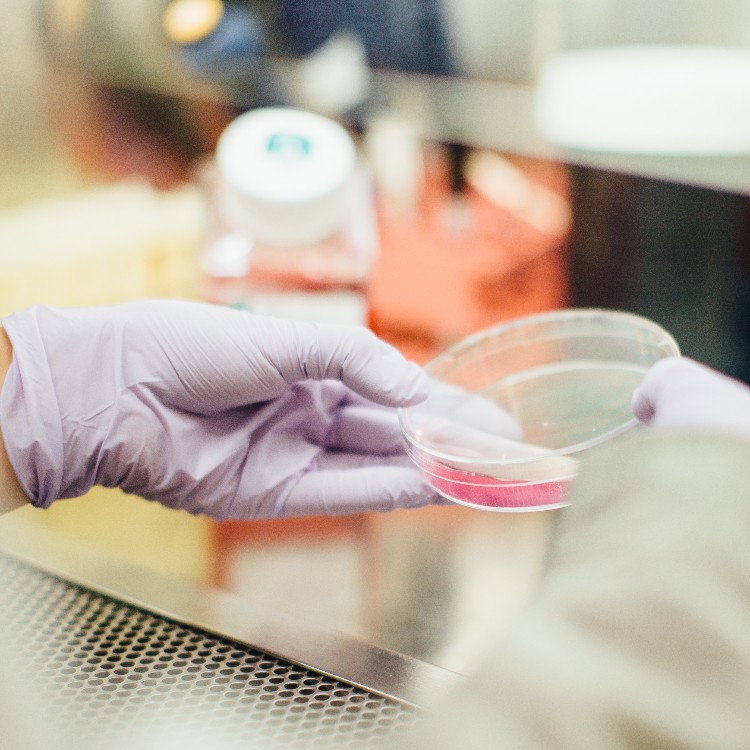
Sirtuins 101: What are They, Functions, and How to Boost Them
In simple terms, sirtuins (SIRTs) are enzymes found in different parts of human cells. They perform many functions that are related to metabolism, slowing down the aging process and preventing the development of certain diseases. In mammals, there are seven types of sirtuins – SIRT1-7. Although the role of sirtuins in longevity is still being researched, their function in maintaining metabolic health has been proven.
To understand sirtuins completely, let’s look at them better:
Sirtuins: Structure and Activation
According to their chemical structure, sirtuins are proteins. In order to achieve their function, they must be activated first. Sirtuins are NAD+ dependent enzymes, meaning they require nicotinamide adenine dinucleotide (NAD+) as a cofactor for their activity. Various substances and mechanisms can activate NAD+. The most famous one is resveratrol, a polyphenolic compound with promising anti-aging and antioxidant properties. Other compounds, such as chalcones (butein) and flavones, are also sirtuin activators. As well as activation, some chemical compounds can inhibit them, such as splitomicin, sirtinol, and cambinol.
Sirtuins Function
These enzymes impact numerous aspects of cellular functions, which makes them significant elements in anti-aging and human health in general. The most important functions include:
Cellular Health
Sirtuins’ main function is cellular health support. They enhance DNA repair by deacetylating histones, which helps maintain genome stability and reduces the risk of mutations. Sirtuins also regulate genes by modifying chromatin structure, determining which genes are active, and influencing important cellular processes. Other than that, sirtuins optimize mitochondrial function, which is the core of cell energy production.
Sirtuins and Aging
The aging process implies a gradual decline in cellular and body function, with increased susceptibility to various diseases. One major factor of aging is the accumulation of cellular damage over time, including DNA damage and changes in gene expression. The second important contributor is oxidative stress. Sirtuins fight both of these causes of aging. Sirtuins impact aging through their ability to regulate gene expression and maintain genomic stability. Through deacetylation of histones, they tighten chromatin structure and repress aging-related genes. This epigenetic regulation helps preserve the integrity of the genome and reduces the risk of mutations and DNA damage that accumulate with age. Many studies have shown that increasing sirtuin activity can extend the lifespan of various organisms.
Oxidative Stress
As we mentioned recently, oxidative stress is a condition where an imbalance between free radicals and the body’s ability to neutralize them leads to cellular damage. It is a significant factor in various diseases and the aging process. Sirtuins combat oxidative stress through multiple mechanisms. Firstly, they activate antioxidant defense systems by enhancing the expression of antioxidant enzymes like superoxide dismutase (SOD) and catalase. These enzymes help neutralize ROS (reactive oxygen species) and reduce cellular damage. Secondly, sirtuins promote mitochondrial health and efficiency. By improving mitochondrial function, they reduce the generation of ROS, decreasing oxidative stress at its source.
Metabolic Health
Studies in mice have shown that increasing sirtuin activity can improve insulin sensitivity and protect against diet-induced obesity and insulin resistance. Sirtuins enhance metabolic health by increasing insulin sensitivity, which is vital for maintaining proper blood sugar levels. They increase insulin sensitivity through deacetylation and activation of a protein called PGC-1α (peroxisome proliferator-activated receptor-gamma coactivator 1-alpha), which improves insulin receptor signaling. This means that cells become more responsive to insulin, which allows better glucose uptake and utilization.
Inflammation
Inflammation is a natural response by the body to harmful stimuli, such as infections, injuries, or toxins. However, chronic inflammation is associated with various diseases, including cardiovascular disease, diabetes, and autoimmune disorders. Sirtuins exert their anti-inflammatory effects by deacetylating and thus regulating the activity of key transcription factors involved in inflammation, such as NF-κB (nuclear factor-kappa B) and STAT3 (signal transducer and activator of transcription 3). As a result of deacetylation, sirtuins inhibit the pro-inflammatory actions of these proteins and, thereby, the inflammatory response.
Research has shown that sirtuins can mitigate inflammation in various experimental models. For instance, in studies on mice, increased sirtuin activity has been found to alleviate inflammation and protect against conditions like colitis and arthritis.
Neuroprotection
Sirtuins influence the neurological system through several mechanisms. The most important contribution to neurological health is the protection of brain cells from oxidative stress and DNA damage. This is particularly important in neurodegenerative diseases like Alzheimer’s and Parkinson’s, where oxidative stress plays a central role. Besides, sirtuins participate in promoting neuroplasticity, the brain’s ability to adapt and form new connections, which is critical for learning and memory. They enhance the production of brain-derived neurotrophic factor (BDNF), a protein that supports the growth and maintenance of neurons.
Animal studies have demonstrated that sirtuins protect against age-related cognitive decline and neurodegenerative diseases. These findings highlight the potential of sirtuins as therapeutic targets for preserving and enhancing neurological health.
Cardiovascular Health
Sirtuins support cardiovascular health by improving vascular function. They enhance the production of nitric oxide, a molecule that relaxes blood vessels. Their relaxation leads to blood pressure reduction and improved blood flow. This effect is crucial for preventing conditions like hypertension and atherosclerosis.
Sirtuins control lipid metabolism through the regulation of genes that impact cholesterol and triglyceride levels. By enhancing lipid metabolism, sirtuins reduce the risk of plaque buildup in the arteries, which can lead to heart disease. They also have anti-inflammatory properties that can help reduce inflammation in blood vessels, the main factor in cardiovascular disease development.
How to Increase Sirtuins?
Sirtuin activation can be achieved through various lifestyle and dietary strategies. Let’s dive deeper into them:
Caloric Restriction
Caloric restriction is a well-known method of increasing sirtuin levels and activity. This effect is primarily mediated through the availability of the coenzyme nicotinamide adenine dinucleotide (NAD+). When you practice caloric restriction, your body’s energy production shifts, leading to a rise in NAD+ levels. Increased NAD+ availability activates sirtuins, as they rely on NAD+ as a cofactor for their enzymatic activity.
Intermittent Fasting
Intermittent fasting is another dietary approach that can contribute to an increase in sirtuin levels and activity. This can enhance sirtuin activity through multiple mechanisms:
- Increased NAD+ levels: Like caloric restriction, intermittent fasting can lead to an elevation in NAD+ levels.
- Cellular stress response: Intermittent fasting induces mild cellular stress during the fasting periods. Sirtuins are part of the cell’s stress response system and become more active under that condition.
- Autophagy: Intermittent fasting also stimulates autophagy, the process of removing damaged or dysfunctional cellular components.
Regular Exercise
Regular exercise contributes to an increase in sirtuins, particularly SIRT1, through several mechanisms. The most important mechanism is boosting NAD+ production. Additionally, it promotes mitochondrial biogenesis in muscle cells, which enhances energy metabolism and cellular health. Other than that, exercise has anti-inflammatory effects that indirectly support sirtuin function. Regular physical activity can elevate sirtuin levels and activity, improve metabolism, and slow down aging and age-related diseases.
Sirtuin Foods vs Sirtuin Supplements
The level of sirtuins in the body can be influenced. It has been proven that foods containing polyphenols have a positive effect on increasing these important enzymes.
First of all, those are resveratrol-containing foods, such as grapes, blueberries, peanuts, cranberries, strawberries, cocoa powder, pistachios, and raspberries. In second place are foods rich in quercetin: capers, onions, apples, peppers, broccoli, kale, tomatoes, green tea, and black tea.
Despite the fact that these food sources are a great way to increase sirtuin levels in the body, there are simpler ways to reach the same goal. The simplest way is to use supplements based on polyphenols, such as Vana Health.
Vana Health is a natural food supplement based on essential polyphenols. Apart from polyphenols, it contains additional natural ingredients, which together contribute to:
- renewing cells and slowing down aging
- restoring the elasticity and vitality of the skin
- maintaining optimal weight
- body purification from heavy metals
- reducing water retention
- raising energy
- reducing stress
- improving sleep quality and immunity
- strengthening cognitive abilities
- better digestion
Vana Health is the ideal way to lift your vitality and appearance to perfection. Do not wait to improve your health! Shine today with this premium food supplement.
Better health starts now!
The Bottom Line
Sirtuins are fascinating proteins that play multiple roles in cellular health and longevity. Considering the incredible properties of sirtuins that have been discovered so far, their importance to human health is undeniable. However, we still don’t know everything about sirtuins. This leaves room for promising scientific research, which will surely make a remarkable contribution in the field of anti-aging and the treatment of many diseases.
FAQ
What increases sirtuins?
Sirtuins can be increased through several lifestyle and dietary strategies. One effective method is caloric restriction. This allows the body’s energy production to shift, leading to a rise in nicotinamide adenine dinucleotide (NAD+) levels. Increased NAD+ availability activates sirtuins, as they rely on NAD+ as a cofactor for their enzymatic activity. Intermittent fasting also raises NAD+ levels and stimulates sirtuin activity. Additionally, regular exercise has been shown to increase sirtuin expression, particularly SIRT1, the most extensively studied sirtuin. Certain foods and compounds, such as resveratrol, curcumin, and catechins, also boost sirtuin activity.
Does curcumin activate sirtuins?
Curcumin, a bioactive compound found in turmeric, has been the subject of various studies due to its potential health benefits. One area of interest is its role in sirtuin activation. Studies suggest that curcumin can activate sirtuins, particularly SIRT1. It achieves this by increasing the levels of nicotinamide adenine dinucleotide (NAD+), a coenzyme crucial for sirtuin function. Curcumin inhibits the enzyme CD38, which consumes NAD+, thus indirectly increasing NAD+ availability and supporting sirtuin activation.


